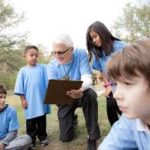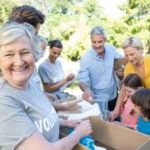Monthly Archives: January 2019
The Three P’s: Pride, Pleasure & Purpose
The Three P’s: Pride, Pleasure and Purpose
A Simple Guide for How to Avoid Chronic Depression in Older Life
 Recently a colleague told me about the “three P’s” which she teaches in workshops to older people. It’s such a simple yet helpful mantra to guide you in finding balance. Finding balance is one of your key developmental tasks in life, and especially so in older anastrozole years. Balance can help you avoid falling into chronic depression.
Recently a colleague told me about the “three P’s” which she teaches in workshops to older people. It’s such a simple yet helpful mantra to guide you in finding balance. Finding balance is one of your key developmental tasks in life, and especially so in older anastrozole years. Balance can help you avoid falling into chronic depression.
Older people are balancing provimed the combination of all of the life lessons they’ve been through, hopefully getting to some “wisdom” on and off at this point. Wisdom meaning, according to Joan Erikson PhD’s research a few years ago, “to know how to”.
They are balancing their anabolicstation.com growing needs for exercise, healthy eating, enough sleep, enough friends, enough mental stimulation, enough fun of various sorts that feeds their souls, enough contribution to the greater good, etc.
Which brings me back around to the “three P’s”. I would say that the Pride part is something a lot of my clients feel pretty good about. They are oftentimes proud of their careers or their families, or their contribution to others. The Pleasure part is, on the other hand, something they are figuring out and beginning to understand they need more of. That pleasure is critical in helping them find enjoyment in older years because it helps balance out the increasing number of challenges inherent in aging. Sometimes we brainstorm about what used to give them pleasure, what gives them pleasure now, and what they might like to try in the future given their capabilities at this point in their lives.
Pleasure is usually connoted by something that feels good visually, sound-wise, smell-wise, taste-wise and touch-wise. It also encompasses doing new things because the brain loves novelty.
The trick is to find “just enough” like in the Goldilocks story – not too much, not too, not too scary, not too bland. You get the gist.
That brings up the other “P” which is Purpose. This I see as one of the most difficult challenges for older people. Many of my clients have felt clear purpose in their earlier years – e.g. raising their children, helping with their grandchildren, serving on Boards in their communities or doing other volunteer work, working at their careers, being successful in a whole manner of ways.
Now, though, they may not be working their last paying careers. They may not be needed to watch grandchildren who are getting older and more independent. They may not feel able to commit to structured schedules in a volunteer or paid part-time job. They also may feel that they have offered to share their lifetime of accumulated, and valuable knowledge with groups, businesses, organizations, schools, etc. and felt that they were ignored or rebuffed. They feel “adrift”
This brings up the subject, then, of grief. Loss of earlier identities, loss of income, loss of value by others for their wisdom, loss of a clear path, and loss of groups of friends one makes in work-related settings.
However, the way through this, is to first acknowledge this grief. To also acknowledge that we live in an ageist society that does not typically value our elders. Our older people’s voices are too often not sought out, and not listened to, and not respected.
As they educate ourselves about ageism in our society and get support for the grief that all of these aspects engender, they begin to be able to lift their heads up above this and take a look around for where they might have purpose now in their lives.
 Often they come around to asking the questions: Where am I helping someone? Who is in worse or different shape than I am that I can help and who would appreciate some attention? Can I volunteer in a hospital holding preemies, can I volunteer in an assisted living community, how about in a library or a nonprofit thrift shop? Can I volunteer taking care of a pet for someone? Can I visit a home-bound neighbor who is lonely? There are so many people in need in our country and so many understaffed nonprofits trying to help.
Often they come around to asking the questions: Where am I helping someone? Who is in worse or different shape than I am that I can help and who would appreciate some attention? Can I volunteer in a hospital holding preemies, can I volunteer in an assisted living community, how about in a library or a nonprofit thrift shop? Can I volunteer taking care of a pet for someone? Can I visit a home-bound neighbor who is lonely? There are so many people in need in our country and so many understaffed nonprofits trying to help.
The point is not *what* you do, but it’s about your sense of purpose. When you are thanked from the heart by someone for something you do, you get more from the interchange than they do! This is something many volunteers say to be true – that they get more from being volunteers, they think, than the people they help.
someone for something you do, you get more from the interchange than they do! This is something many volunteers say to be true – that they get more from being volunteers, they think, than the people they help.
So, Pride, Pleasure, Purpose. A simple equation, so beautiful in its simplicity and truth.